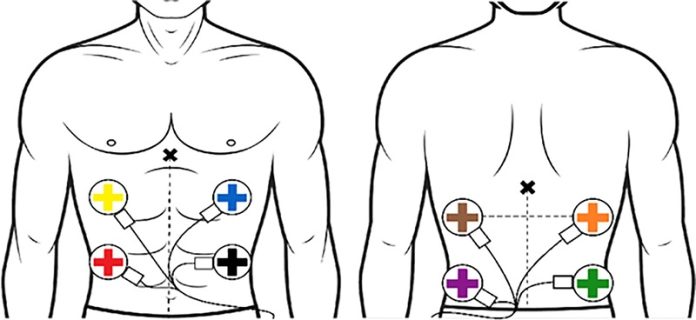
Two researchers from Texas Tech Health El Paso are gaining attention for their work on a tiny electronic capsule that could change how doctors diagnose and treat gastrointestinal (GI) issues.
This device, called the MoPill, wirelessly sends important information about the digestive system as it travels through the body, helping doctors better understand how food and liquids move through the gut.
The two researchers, Dr. Irene Sarosiek and Dr. Richard McCallum, have spent years studying this MoPill.
The capsule is swallowed by the patient and then makes its way through the digestive system.
As it moves, it sends data to sensors attached to the patient’s body. The data collected shows the position of the pill in the body and how long it takes to pass through different parts of the digestive tract.
This allows doctors to track the movement, or “motility,” of food, liquids, and waste through the gut.
Their research was recently published in the journal Neurogastroenterology & Motility, showing promising results. Dr. Jesus Diaz, a radiology expert, has also been working closely with Drs. Sarosiek and McCallum in their study.
Dr. McCallum described the MoPill as a major breakthrough, calling it a “gastrointestinal positioning system,” or GPS for the digestive system.
The pill provides doctors with real-time, three-dimensional data as it travels through the GI tract, offering a clearer picture of what’s happening inside a patient’s body.
Current methods for diagnosing gut problems often expose patients to radiation and provide only limited information about gut movement. The MoPill, on the other hand, offers more detailed information without these downsides.
The study involved 10 healthy volunteers, and the researchers were pleased with the results. The MoPill successfully transmitted data during its journey through the digestive system, and there were no negative side effects reported.
Dr. Sarosiek and Dr. McCallum believe this study shows that the MoPill has great potential for helping doctors diagnose and treat patients with gastrointestinal motility disorders, which affect how food and liquids move through the gut.
Dr. McCallum is confident that this technology will spark interest from companies that can help develop the MoPill further and bring it to hospitals and clinics.
He believes the MoPill could become a game-changing tool in the world of GI diagnostics, helping patients get more accurate diagnoses and better treatments.
The timing of the study’s release was perfect, as it was published right before August, which is both Gastroparesis Awareness Month and Digestive Tract Paralysis Awareness Month. These conditions affect gut movement, so the MoPill could be especially useful in diagnosing and managing them.
Dr. Sarosiek is excited about the future of the MoPill, saying that the potential for the device is limitless.
She and Dr. McCallum hope that their research will lead to more studies and, eventually, a new generation of wireless capsules that can transform how doctors diagnose gut problems.
If you care about nutrition, please read studies about how Mediterranean diet could protect your brain health, and the best time to take vitamins to prevent heart disease.
For more information about nutrition, please see recent studies that olive oil may help you live longer, and vitamin D could help lower the risk of autoimmune diseases.
Source: KSR.



